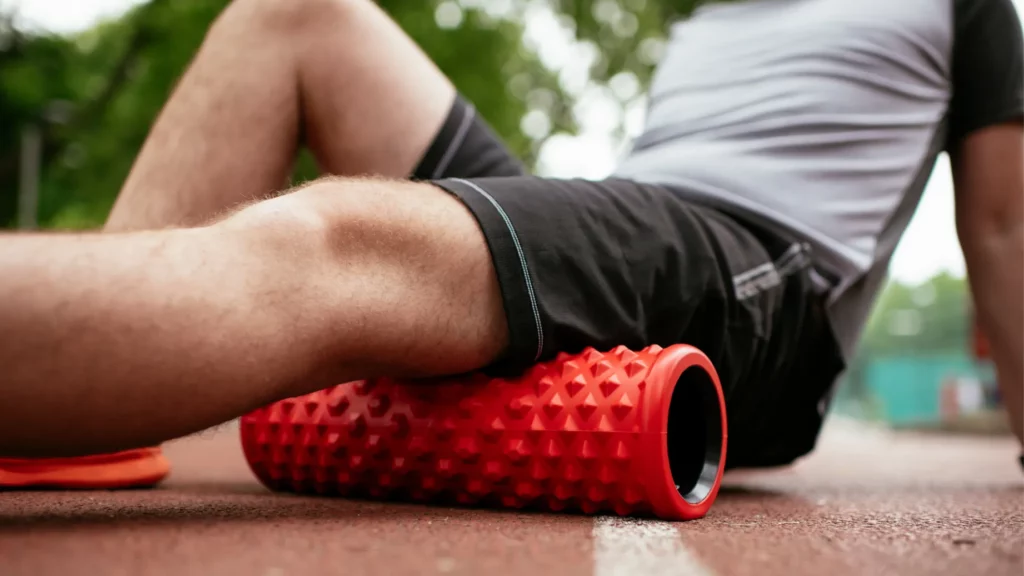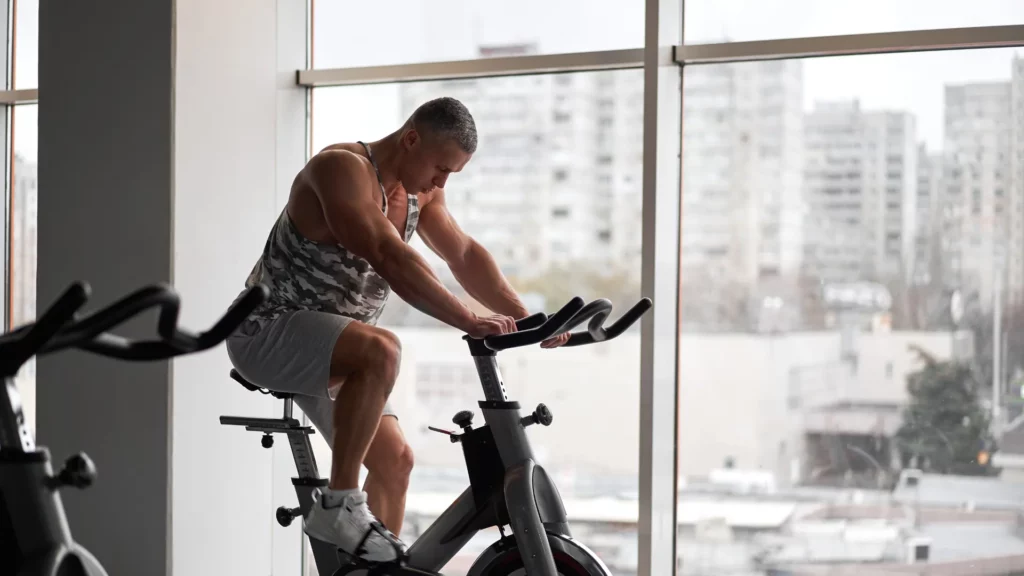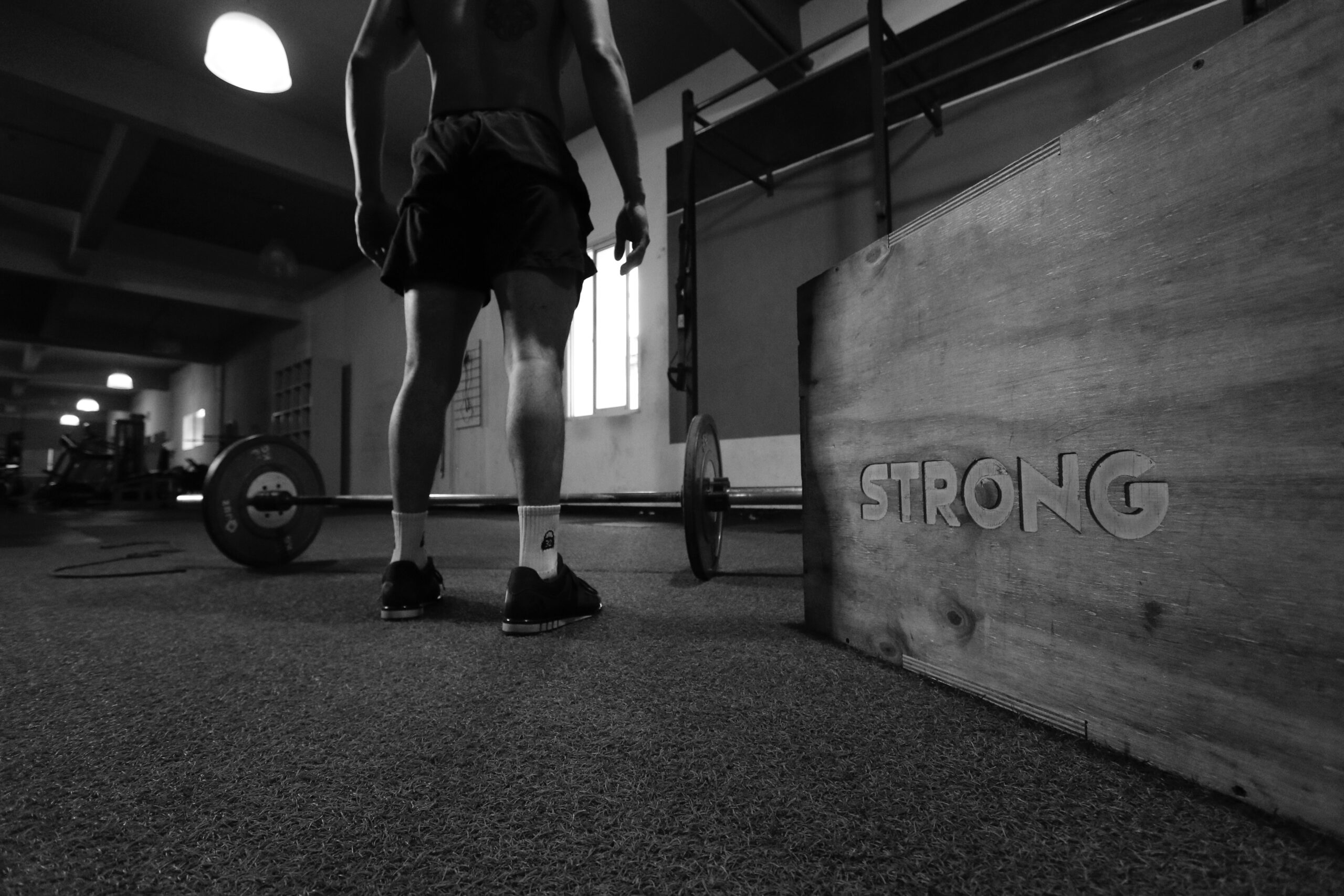Have you ever felt increasingly tired as your training sessions progressed?
Contrary to popular belief, rest is not always enough to recover from weight training or high-intensity workouts.
Recovery depends on many factors. That said, to focus on the essentials, specialists often focus on three points:
- FOOD ;
- REST;
- activities beneficial to recovery.
Diet is important here, as repairing damaged muscles mobilizes a huge amount of resources, including protein.
Rest gives you enough time to recover from the traumas of training.
Finally, various activities can be envisaged to accelerate the regeneration of muscle tissue.
A number of rules need to be observed to take advantage of these three levers.
However, in order to give you clear and concise advice, we have prepared 15 practical tips to speed up recovery.
These tips are based on studies carried out by specialists in the field, or on commonly accepted and recognized practices in top-level sport.
Read on to learn how to optimize muscle recovery.
Contents
- Tip no. 1: Meet your protein requirements
- Tip n°2: Drink your shaker after training
- Tip 3: Stay hydrated during and after training
- Tip 4: Don't neglect carbohydrates
- Tip 5: Don't forget minerals and vitamins
- Tip 6: Think antioxidants: real allies for rapid recovery
- Tip 7: Get at least 8 hours' sleep a day
- Tip 8: Plan your workouts carefully
- Tip 9: Respect break times during training
- Tip 10: Listen to your body
- Tip 11: Use the cold to recover
- Tip 12: Engage in intellectual activities
- Tip 13: Don't go without a post-workout massage
- Tip n°14: Why not try active recovery?
- Tip 15: Don't skip stretching
Tip no. 1: Meet your protein requirements

After exercise, the body consumes numerous amino acids to repair damaged muscle fibres. To carry out this process, it uses the proteins provided by your diet. A protein deficiency will therefore be detrimental to proper muscle recovery1.
As soon as you engage in regular physical activity, your protein requirements increase. Scientists estimate that athletes and body-builders need between 1.3 and 2 g/kg/d of protein, depending on their activity.
Given that the average French person consumes 1.2 g of protein per day, many athletes resort to supplements to top up their daily protein intake.
Good to know: of all the dietary supplements available, whey remains the most popular. This protein powder provides the famous essential amino acids (EAA). These are amino acids that the body is unable to synthesize.
Whey is therefore a quality product for optimizing recovery and the beneficial effects of training.
Here are a few articles on the subject:
- What's the best whey for crossfit?
- What's the best whey for soccer?
- What's the best whey for running?
- What's the best whey for cycling?
Tip n°2: Drink your shaker after training

As we've often said, supplementation should be a source of pleasure, not a constraint. Sportsmen and women should choose the moment when they prepare their shaker according to their schedule.
If you don't have time to prepare it after your workout, take it before you leave home, or at an appropriate time of day.
Nevertheless, if the aim is to optimize recovery rather than mass gain, it's best to consume your protein shaker after training. This provides the body with the amino acids it needs to repair the damage it has suffered.
Although there are countless protein powders to choose from, whey remains the most suitable for this type of use, and more specifically whey isolate. In addition to its excellent amino acid profile, whey has a rapid assimilation rate.
This makes it perfect for post-workout supplementation(whey is a dietary supplement- find out more about whey here).
In any case, make sure you choose a whey protein with no additives or sweeteners, to reap the full benefits and preserve your health in the long term.
As far as possible, opt for quality, minimally processed foods. An easy rule to remember: if your grandmother wouldn't eat it, avoid it. On this subject, we return in detail to the question of cheap whey and its potential consequences.
Obviously, for a sportsman or woman in search of performance, abuse is a must. Discover the impact of alcohol on muscle recovery.
Mind you, we know you know, but we'd rather say it again: whey complements your diet, it's not a substitute.
Tip 3: Stay hydrated during and after training

Physical exercise is accompanied by significant water loss. Yet water is essential for the proper functioning of many biochemical reactions. It has been proven that dehydration significantly reduces physical performance and slows recovery3.
To recover more quickly from your workouts, it's a good idea to hydrate before, during and after training.
Plain water can do the trick, depending on the period. Isotonic beverages during long efforts, as well as adapted recovery drinks, will be particularly beneficial to all those who train regularly.
Tip 4: Don't neglect carbohydrates

Unfortunately, the role of carbohydrates in sports nutrition is not discussed often enough. Yet these macronutrients are the foundation of the muscular energy chain. They determine the amount of glycogen you store in your muscles and liver.
Remember that the muscles will mobilize these reserves to produce energy during exercise.
During training, athletes draw on their glycogen reserves. As these reserves are depleted, fatigue becomes increasingly intense. After training, you need to replenish your glycogen reserves to regain your vitality.
With this in mind, carbohydrates are consumed. These carbohydrates are generally found in adapted, purely carbohydrate drinks, but also in mixed protein + carbohydrate drinks (ideal), and in the classic sportsman's diet.
To find out more, read our article entitled What to take to promote muscle recovery and our answer to the question Should you take protein before or after sport for recovery?
Tip 5: Don't forget minerals and vitamins

Repairing the damage caused by training is a complex process. Minerals and vitamins are also involved in a multitude of reactions that will help you recover. In this case, you need to do all you can to avoid a deficiency. Normally, with a varied and balanced diet, these intakes are guaranteed.
Supplementation for inadequate vitamin and mineral intake from the diet may be justified when there is an unavoidable change in dietary intake or nutritional density. For example:
- A prolonged period of travel, particularly in countries where the food supply is insufficient or limited, or a prolonged period of energy restriction required to manage weight or body composition targets;
- Restricted food intake for athletes with severe intolerances who are unable or unwilling to increase their dietary range;
- As part of a busy competition schedule, involving disruption of normal eating habits and dependence on a narrow range of foods.
In these cases, the selection of a suitable product should be based first and foremost on its composition. Products should preferably contain a wide range of vitamins and minerals, in doses that mimic the population's recommended intake.
These multivitamin compounds should not contain unnecessary herbal ingredients.
We also pay attention to their origins and preparation methods, preferably by a company that is transparent about its good manufacturing and sourcing practices.
Tip 6: Think antioxidants: real allies for rapid recovery

Antioxidants have many virtues. These substances protect living organisms from the damaging effects of oxygen free radicals. They ensure that many biological processes run smoothly. So they can give you a helping hand to recover more quickly from your training sessions.
There are a multitude of foods naturally rich in antioxidants. Choose antioxidant-rich vegetables and fruit in season. You'll find plenty of examples on the Internet.
For example, walnuts, kidney beans, blueberries and garlic are simple foods that are rich in antioxidants. As for spices, turmeric, cinnamon and cloves are also good candidates.
Caution! High doses of antioxidant vitamin supplements (e.g. vitamins C and E) can, in some cases, be counterproductive.
Such excessive supplementation has been shown to impair training efficiency by inhibiting the oxidative pathways necessary for the adaptive response to a workout.
Tip 7: Get at least 8 hours' sleep a day

Sleep is particularly conducive to recovery. While you sleep, the body secretes various hormones, some of which help repair muscle fibers.
These substances provide the means to mobilize all resources and rebuild muscles in the best possible conditions.
Lack of sleep can therefore be detrimental to muscle recovery. And it's not just a question of getting enough sleep. Sleep quality is also a factor to consider.
Certain beneficial hormones are only produced during deep sleep. So make sure you get at least 8 hours' sleep a day (this may vary from person to person) and invest in quality bedding.
One of the best Ted Talks on the subject of the importance of sleep is Matt Walker's. With notable eloquence, he delivers in less than 20 minutes an impactful digest of the best studies on the subject. To remember:
- Men who sleep an average of four to five hours a night will have the testosterone levels of a man 10 years older.
- Recently, we discovered that you also need to sleep before learning to prepare your brain.
- As we age, our ability to learn and memorize fades and declines. But we've also discovered that the physiological characteristic of aging is to sleep less well, particularly deep sleep, which declines in quality. Disturbed deep sleep is a contributing factor to cognitive or memory decline.
- In spring, when we lose an hour's sleep, we see a 24% increase in heart attacks the following day. In autumn, when we gain an hour's sleep, we see a 21% reduction in heart attacks.
- A night of just 4 hours reduces white blood cell activity by 70%.
- The link between sleep deprivation and cancer is so strong that the World Health Organization has classified all forms of alternating night work as potentially carcinogenic.
- No aspect of your well-being can benefit from a lack of sleep, and it's impossible not to suffer the consequences.
Tip 8: Plan your workouts carefully

Overtraining is the greatest danger facing athletes (especially when combined with reduced energy intake). Often, driven by the desire to make rapid progress, some athletes train to the point of exhaustion, or worse, injury. These situations are systematically counter-productive.
To prevent this, you need to plan your workouts carefully. Sessions should be spaced far enough apart to allow your muscles to recover perfectly. Warm-ups are essential!
Rest periods are very much linked to your training, your practice and your level.
As the body gradually adapts to effort, the time needed for recovery tends to become shorter. We therefore encourage you to seek out a competent sports coach to plan your training sessions properly.
To go further on these aspects, we recommend our articles on optimizing leg muscle recovery and how to maximize muscle gain with recovery?
Tip 9: Respect break times during training

For body-building enthusiasts, it's also important to take into account the break time required between each series of exercises. Intense physical effort over a short period of time requires a great deal of energy. To recharge it, you'll need to rest for a few moments.
This break time must be optimized. If it's too short, you risk not having enough energy for the effort. If you rest for too long, the effort you put in won't be intense enough to promote the beneficial effects of training and mass gain, if that's the goal.
The truth is, rest time depends on the workload. The body needs about 3 to 5 minutes' rest after lifting a load corresponding to 1RM (one maximum repetition).
For a set of 8 to 15 repetitions (50/70% of max load), you will generally rest for 30 seconds to 2 minutes, depending on your objectives and your program.
Tip 10: Listen to your body

Despite all these tips to help you avoid overtraining, it's hard for us to set a limit.
As everyone is different, each athlete should follow his or her own routine. A routine that's demanding enough for them to make progress, but that also gives them the rest they need.
A brief aside on anti-inflammatories: these drugs, some of which you can buy without a prescription, such as ibuprofen, are very useful for short periods and/or for specific pathologies (be sure to respect the dosage indicated by your doctor/pharmacist, and do not exceed the recommended dose). Long-term or repeated use must be supervised by a doctor.
Warning: in the case of mechanical injury or overstressing of a limb or joint, these drugs, by their mode of action, reduce inflammation and associated pain, but do not treat the problem directly.
They can make the sensation of pain disappear, before the pain has really healed. If they are over-used, and used too much before the body has recovered properly, the result can be a rebound effect and greater problems than before.
In these conditions, we advise you tolisten more carefully to your body. Know when you need to rest. Once again, we encourage you to seek out a competent professional coach to set up a suitable training program.
Tip 11: Use the cold to recover

Cryotherapy is a veritable institution among top-level athletes. Immersion in a very cold environment is said to alleviate pain and fatigue after training, helping the body to recover better.
As an amateur, you can use cold water in the shower to take advantage of its benefits. After lowering skin temperature (target 12°), the return to room temperature will allow vasodilatation in response to vasoconstriction, and multiple benefits, notably vascular and muscular.
Tip 12: Engage in intellectual activities

Stimulation of the nervous system is also conducive to muscle recovery. Quiet intellectual activities at rest are therefore also encouraged.
So you can read books or solve puzzles on your days off.
Equally important, meditate! For some people, in addition to the benefits for mood and sleep, meditation can increase testosterone secretion.
Tip 13: Don't go without a post-workout massage

Massage provides localized relief from muscular pain, while promoting tissue regeneration. Through drainage and immune stimulation, massage helps to treat inflammation.
Nothing can match the expertise of a physiotherapist or physiotherapist, but you can also try out practical, quick second-line solutions such as massage guns.
Tip n°14: Why not try active recovery?

Active recovery is also an effective solution if you are putting particular strain on the lower body.
The next day, you can jog or ride an exercise bike at very low intensity.
These low-intensity activities are enough to stimulate circulation. The influx of blood will accelerate recovery and significantly reduce soreness.
Tip 15: Don't skip stretching

Well-known but overlooked by some sportsmen and women, stretching is still very important for athletes, and also in bodybuilding.
As we age, muscles and tendons gradually stiffen, leading to a loss of flexibility and reduced functional capacity.
Normal wear and tear caused by daily stressors and training induces tension and stiffness in muscles and joints, which can reduce normal range of motion and ultimately lead to poor posture.
Finally, muscular tension can lead to a variety of aches and pains, and even psychological stress.
Never stretch too hard, and never do it after an intense workout. It's better to wait and do them when you're calming down or resting.
- Dietary protein for athletes: from requirements to optimum adaptation - Stuart M Phillips, Luc J C Van Loon - 2011
- Source: French National Research Institute for Agriculture, Food and the Environment (INRAE)
- Influence of Hydration on Physiological Function and Performance During Trail Running in the Heat - Douglas J. Casa, Rebecca L. Stearns, Rebecca M. Lopez, Matthew S. Ganio, Brendon P. McDermott, Susan Walker Yeargin, Linda M. Yamamoto, Stephanie M. Mazerolle, Melissa W. Roti, Lawrence E. Armstrong and Carl M. Maresh - 2010
- Merry TL, Ristow M. (2016). Do antioxidant supplements interfere with skeletal muscle adaptation to exercise training? J Physiol. 594(18), 5135-47.













